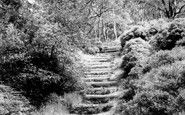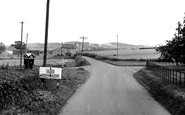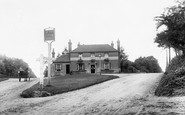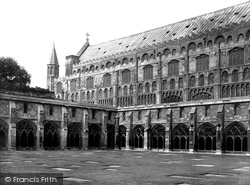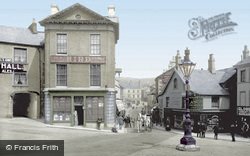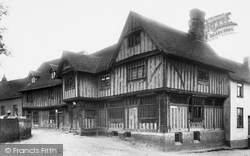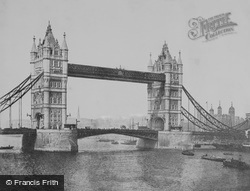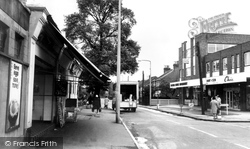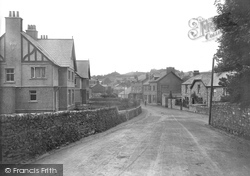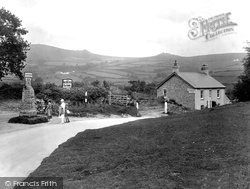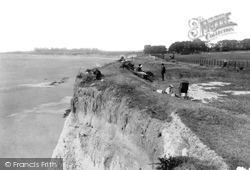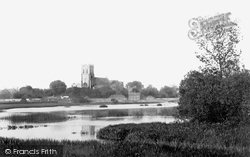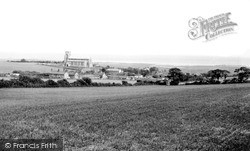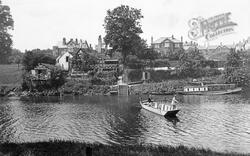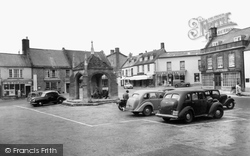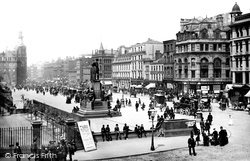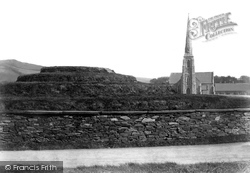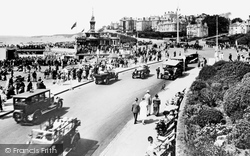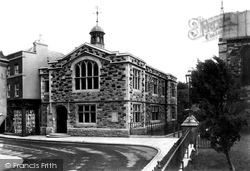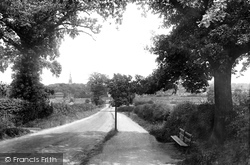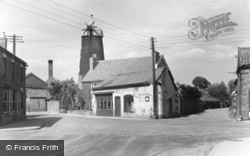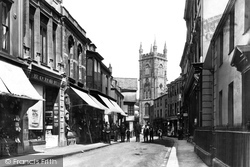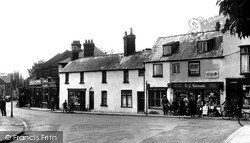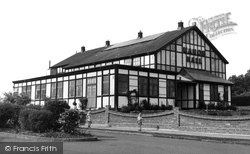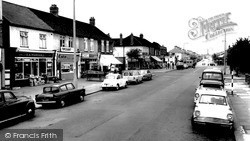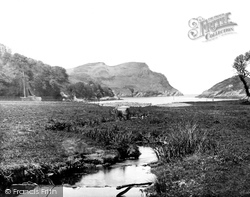Places
18 places found.
Those places high-lighted have photos. All locations may have maps, books and memories.
- Hythe, Kent
- Hythe, Hampshire
- Small Hythe, Kent
- Bablock Hythe, Oxfordshire
- Methwold Hythe, Norfolk
- Hythe, Somerset
- Hythe, Surrey
- Hythe End, Berkshire
- The Hythe, Essex
- Egham Hythe, Surrey
- West Hythe, Kent
- New Hythe, Kent
- Broad Street, Kent (near Hythe)
- Horn Street, Kent (near Hythe)
- Newbarn, Kent (near Hythe)
- Newington, Kent (near Hythe)
- Broad Street, Kent (near Hythe)
- Stone Hill, Kent (near Hythe)
Photos
360 photos found. Showing results 1,201 to 360.
Maps
101 maps found.
Books
10 books found. Showing results 1,441 to 10.
Memories
4,406 memories found. Showing results 601 to 610.
Button Oak
I lived in Button Oak during 1942/43 and worked in the Wyre Forest for 'Bob' Harris who was the Forester. Along with two of my mates, Denis Mills and Hubert Till, I made frequent trips into Bewdley to go to the pictures or get my hair cut. ...Read more
A memory of Bewdley in 1940 by
The Big Climb
During the 1950s many children from Birmingham and surrounding areas suffered with TB and chest complaints. I can remember the doctor prescribed that I should have sun ray treatment twice a week and climb the Lickey Steps once a week. ...Read more
A memory of Lickey in 1953 by
Burns Pit Disaster
From his seat, by the fire, my grandad could see the great mound of the spoil heap of Stanley Burns Pit. It was the site of a horrific explosion, on 16th February 1909, in which 168 men and boys lost their lives. He would ...Read more
A memory of Stanley in 1900 by
Growing Up Years
I was born in Old Argent Street 1945 (VJ Day), only one in Grays as my old mum used to tell everyone, she was so proud of that, living in a 2 up, 2 down, mum, dad, 3 brothers, 2 sisters, overcrowded, nah, we got by. We spent summers ...Read more
A memory of Grays by
Silver Watch
I have taken possesion of a very tired silver watch. On the back is engraved 'Presented to Rev J Pearce by the Welsh Row Choir. July 1927'. Does anyone have an interest in the watch?
A memory of Nantwich in 1920
Smokey Joe, The Tramp Of Misterton, Somerset
Smokey Joe, the tramp of Misterton, Somerset, lived in an old stone building just past the chapel cemetery. He would make a fire and sleep on the hot ashes, it's a wonder he never caught himself ...Read more
A memory of Misterton in 1955 by
Court Crescent Junior School And Wellinger Way
I was born at my Grandmother's home at No: 50 Hand Avenue on the Braunstone Estate. When I was about 3 we moved from Grandma's to our own home at No: 9 Wellinger Way. I went to Queensmead Infants ...Read more
A memory of Braunstone Town by
Balloon Woods Wollatton
Balloon Woods. Most people says it was a hell hole. Yes some parts of it was. But to a child it was good. There were more quite a few blocks. Some had four floors, these were called Tansley Walk, Bealey Walk, Hartington Walk ...Read more
A memory of Wollaton in 1971 by
Return Of A Native
Camberley, where it all began. Where I lived half of my life so far. In your head you never leave the place you were born and raised. On a wet un-comforting day I found myself revisiting the town of my past. I was cast into ...Read more
A memory of Camberley in 1988 by
Cookridge Once Fields And Farms
I moved from Holbeck in 1948 into one of the first estates to be built in North West Leeds, Ireland Wood (Raynels). In 1950 I went to Cookridge School, then a wooden hut right slap bang opposite where Cookridge fire ...Read more
A memory of Cookridge in 1950 by
Captions
4,899 captions found. Showing results 1,441 to 1,464.
They were rebuilt slowly from 1297 to 1430; their size was set by the larger-than-life Herbert de Losinga's Norman cloisters, whose outer walls survived the 1272 fire.
The international aspect of the town's trade can be seen by the sign outside Joseph Hird's grocery in the centre of the picture. It advertises him as a 'French and Italian Warehouseman'.
This early 16th-century timber building was commissioned by the Guild of Corpus Christi, a trade organisation which regulated the local industry of wool production.
The lifting bridge was opened by the Prince of Wales, the future Edward VII, in 1894. During the first year of operation it was raised more than 6,000 times for shipping.
In complete contrast to photograph H167008, here we have a rainy morning in downtown Hadleigh by the Rectory Road shops.A pram is parked outside the butcher's shop, whilst on the opposite side of the
We are looking from the bridge by the railway. The road is devoid of both people and traffic – is it early morning?
Although surrounded by a patchwork of fields, Widecombe is a real moorland village, and the skyline is dominated by the tors: centre right is Bonehill Rocks, to the left is Bell Tor and on the
The Belle Vue tea gardens, on the right, were built in 1790 and were very popular.They were visited in 1830 by the future Queen Victoria, who had tea there with her mother.
An earlier Saxon church was demolished by the Normans in 1095. The present building, the longest parish church in England, was built in its place.
On a declivity towards the sea, the highest ground is occupied by the church of St Nicholas, rebuilt in the late 16th century by Sir Henry Heydon.
The ferry was replaced by the footbridge in 1923.
Beaminster (pronounced Bemmister) is situated in a deep valley, surrounded by a ring of picturesque hills, with a gap broken by the singing waters of the River Brit.
In the foreground is a poster advertising the Royal Jubilee Exhibition, which was opened by the Prince of Wales and ran from May to October 1887.
Around AD 870 Tynwald Hill was selected by the Vikings as a suitable location, or 'vollr', to hold their open-air assembly, the 'Thing', held annually on old Midsummer's Day.
By the 1920s cars had almost completely replaced horse-drawn carriages, and charabanc tours had become a popular feature of a seaside holiday.
It replaced Sansom's ironmonger's shop, and was dedicated by the Bishop of Salisbury. A century later, it still serves as the minster's main function and meeting room.
To the right, obscured by the trees, is the railway station.
It had five patent shuttered sails, as is indicated by the five-way cross on the front of the windshaft, and a fantail. It was built in 1826, and the remains were demolished in 1970.
Fore Street is bounded by the fine parish church, built of yellow Pentewan stone.
It is well-known for its wonderful old church, which has towers built by the Saxons and Normans. It also has a historic old abbey, now a nunnery, with walls of the old Saxon church.
It has been owned by the same family, the Spouse family, since 1946.
The Aldborough Road estates were established by the 1900s, and their own church of St John had been built by 1903.
Watermouth`s narrow entrance, guarded by the great bulk of Widmouth Head (centre) to the west and Sexton`s Burrow opposite, makes it one of the safer, more sheltered harbours on this inhospitable
The slim spire in the distance is that of Emmanuel Church, the Wesleyan chapel`s replacement, built in 1898 on a narrow plot given by the council.
Places (18)
Photos (360)
Memories (4406)
Books (10)
Maps (101)



